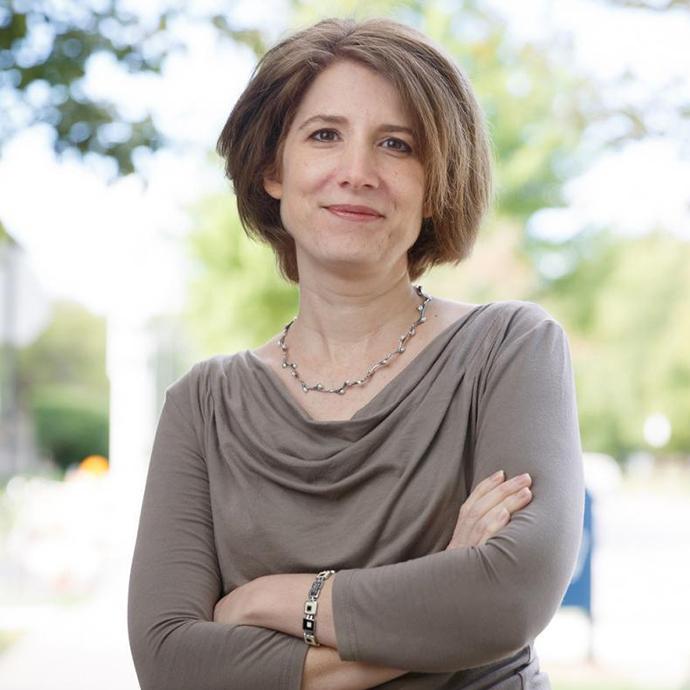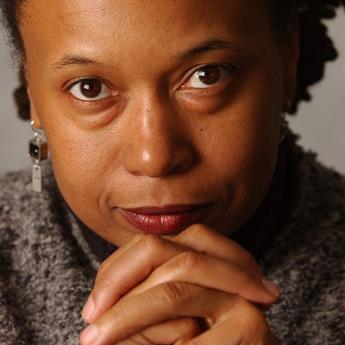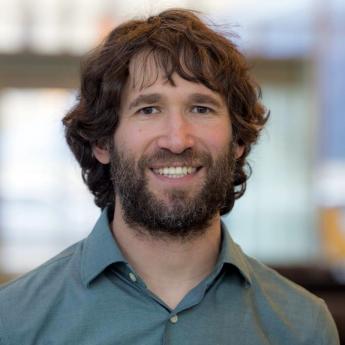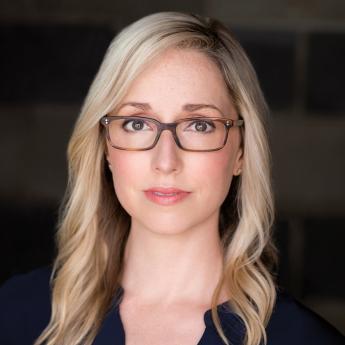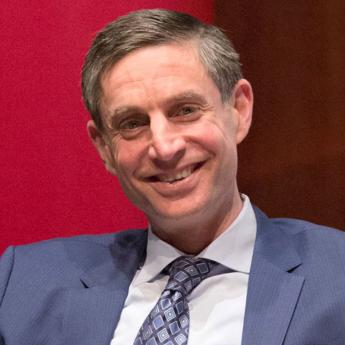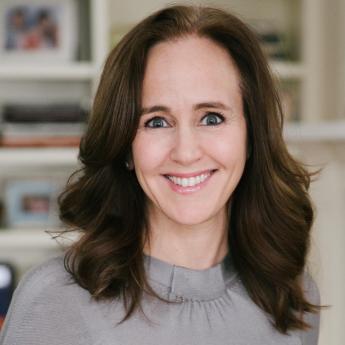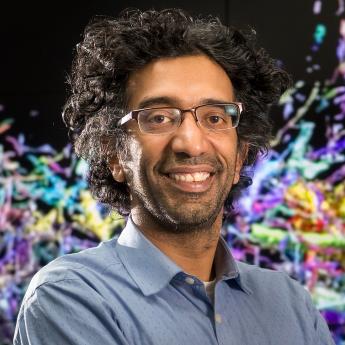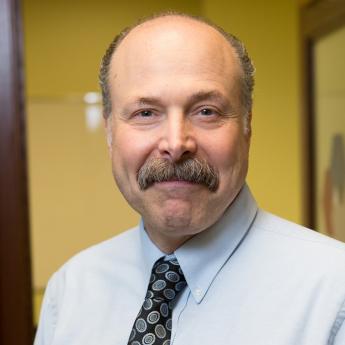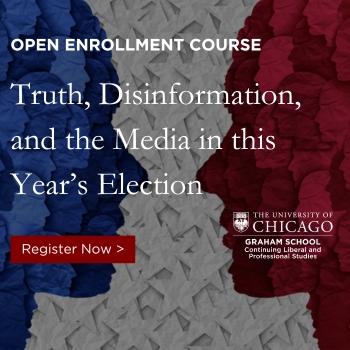Show Notes
The coronavirus pandemic has taken a toll on our students. As we move into the summer, schools will need to understand the best way to address these issues.
To understand what students have lost and how schools can help them recover, there’s no better person to talk to than Elaine Allensworth, the director of the University of Chicago Consortium on School Research. On this episode, she explains what the best research tells us about education during this crisis.
Subscribe to Big Brains on Apple Podcasts, Stitcher and Spotify.
(Episode published May 12, 2020)
Related:
- Will students bounce back from pandemic?
- Remote learning has pitfalls, but we can still help students be successful in this challenging time
- CPS Remote Learning Begins Monday. What That Looks Like Depends On Where You Live
Transcript:
Paul Rand: The coronavirus pandemic has shuttered our schools. Many students have spent the last two months at home trying to learn online. And most primary schools and high schools have said that they won't be returning this year.
Elaine Allensworth: But the more that teachers can continue to make connections, to be predictable, to understand what it is that students may need, troubleshoot with them, give them help, figure out ways to give them support, that's all going to be important.
Paul Rand: Elaine Allensworth is director of the University of Chicago Consortium on School Research. Along with being a former teacher herself, she's a leading expert in the areas of educational attainment and school improvement. In other words, the perfect person to talk to if you want to understand the effects that COVID-19 is having on students and schools and what our education system needs to look like to recover.
Elaine Allensworth: If you have a more chaotic next year, you don't have all the teachers you need, you're hiring teachers along the way. Students are getting one teacher and then suddenly there are more teachers, so they're shuffled into another class, and so they're constantly getting different teachers. Teachers are coming in unprepared. And in that case, you've just undone everything that you thought you were going to do.
Paul Rand: From the University of Chicago, this is Big Brains, a podcast about pioneering research and pivotal breakthroughs that are reshaping our world. This is our special series focused on how the coronavirus is affecting our society, and what the top minds and researchers are focusing on during this pandemic. I'm your host, Paul Rand.
Paul Rand: Before we can understand how our schools can recover in the future, we first need to understand what our students may have lost during this pandemic. But the problem, from a research perspective, is that there's not much in the way of collective experience.
Elaine Allensworth: I've read variable reports, both at the school level and by teachers. It depends on student resources. It also depends on how the school was set up in the first place. So there are some schools that already were set up with some remote learning components. They had an easier time.
Elaine Allensworth: The ways that schools are set up in terms of structures for engaging with families are very different. So the school already was actively communicating with parents and had methods for two-way communication with parents, they're going to have an easier time. While other schools, there are schools that don't even have good contact information. So they're really in a difficult place, if you don't even know how to contact parents because you have out of date phone numbers, out of date emails. And so there's just this wide spectrum in terms of structures for communication and use of technology beforehand.
Paul Rand: And that discrepancy in the use of technology has become even more prominent as schools have transitioned to online learning. But there seems to be some debate around the viability of online learning for early education in general. And you've done some research on this, right?
Elaine Allensworth: I actually did a study of online learning compared to in-person learning, looking at ninth grade algebra recovery. In that case, the online learning was the best of circumstances because it was a course that was handouts, there were lots of supports and resources. And even in that case, students learned less and they were less likely to pass if they took the online version versus if they took a face-to-face version.
Elaine Allensworth: So even in the best of circumstances, online learning is actually not as good as face-to-face learning. And especially for students who are furthest behind, it's even more challenging. And there are a number of reasons for that.
Elaine Allensworth: One is that when students talk about online learning, it felt very rigid to them. It wasn't as flexible. And we could see that in terms of what teachers were doing. Teachers could do chats, they could do special lessons. They could communicate in real time with students. But because everything needs to be posted and figured out in advance, and you don't have that face-to-face two-way communication, it's really hard for teachers to see when students need help or when they're bored and disengaged. It's really hard to be able to give them what they need in a moment when they are at home.
Elaine Allensworth: And so, communication is really important. Mechanisms for communication, not relying on students to reach out to teachers, but for teachers to be actively finding out how students are engaging, that is really, really important.
Elaine Allensworth: And then another thing is to really monitor whether students are getting the work done. And things like whether students are logged in, those kinds of things are not very good data actually. But face-to-face learning, actually monitoring whether students are getting their assignments done is really important data. And not assuming, oh, they can't do it or they don't want to do it, but finding out why they're not doing it. And then trying to troubleshoot around whatever that issue is.
Elaine Allensworth: Economic inequality has always influenced students' ability to engage in school. I mean, just normal school, just regular, a lot of times it's invisible to people who have resources. They don't realize. I think this has just made it more obvious because we can see this one component, the technology component, when a lot of times we don't see all those other ways that families and students may be struggling because they don't have the same economic resources.
Paul Rand: If you're giving advice to parents or caregivers and you're saying, "Here's what you can do to help your child get the most out of this experience." What is it that you're saying? And are you finding that you're getting receptivity to that?
Elaine Allensworth: Yeah, I think they need to be easy on themselves as well as on their children. Everyone's going through a lot of stress right now. And then number two, I think for parents, they are going to be so crucial for students' learning right now because teachers are not there seeing how students are engaging in learning. Parents are the ones who can see are students doing their work? Are they bored? Are they struggling? Are they spending hours and hours trying to get assignments done? Teachers are just really going to be dependent on parents right now for communication and letting them know how students are experiencing learning at home.
Elaine Allensworth: Maybe we'll get innovation out of this. That would be a good thing. Because teachers are so dependent on parents right now, maybe some new structures will... Teachers will start to innovate. Schools will start to innovate in terms of how to support teachers to communicate well with families and students, but everything has to be built at this point.
Paul Rand: And so there's been a lot of reports that are trying to estimate just how much learning loss has happened during all of this. As one of the leading experts in education research, what do you make of those?
Elaine Allensworth: There have been some estimates out there about how much learning loss there's going to be that people have taken very, very seriously. I would say a lot of those have been very back of the envelope kind of estimates that we should take with caution.
Elaine Allensworth: And I do worry that because of that, people are starting to think about doing things like overloading students with a lot of missed content in the year. Ramping up expectations in this next year in terms of how much they're going to cover and how much they're going to expect the students, without necessarily giving them the support they're going to need to do that.
Elaine Allensworth: And if I could just say, if you're just throwing a lot more at students that they have to do, so saying, "Okay, now we're going to cover a year and a half instead of a year." If you do that without giving them more support they're just going to withdraw, get frustrated. And that's not going to be the supports that they need, social emotional supports, because we really want to make sure students feel like they can succeed.
Elaine Allensworth: So the estimates about how far students are going to be behind, some of the more dire estimates would be, some students, especially in math and the younger grades will be behind by a half a year or more. Again, those are the most dire estimates.
Elaine Allensworth: If that happens, a half year for most students will still put them in a range that's normal for their grade level. Because at most grade levels, students at any one given grade level are very different in terms of the skills they come in with. There's much more difference within the grade than the amount that students learn from year to year. And so losing half a year, students will still, mostly be at a normal range, a range that's typical. And so they might need a little more support, but they won't require a major change in terms of how teachers are going to be teaching for their grade level.
Elaine Allensworth: But for students who started out far behind, they may end up much further behind. They may end up, they're going to need more support to handle their grade level material. And so thinking about how do we get extra instructional time for those students, whether it's summer classes, a mentor, a tutor or for teachers to have assistant teachers in the room that can give extra personalized support to students so that they can succeed, that takes resources.
Paul Rand: And so when you think about even grading for a year like this, how is it that grading gets done in a situation like this?
Elaine Allensworth: A number of people have said, "Well, we just should have no grades at all or students shouldn't get any credits." We need to think about what that does for students overall. Some students are not going to be able to engage, but a lot of students are going to be able to engage in learning. And there is this concern if students are not getting grades, first of all, how then do you motivate students to get the work done? And then also, are they not going to get the rewards for working hard?
Elaine Allensworth: If we look at more affluent schools that are serving more affluent students, private schools, they're continuing on with classes. And so if we just say, "Oh, what happens is what happens with the public schools," we may not be serving students very well. And then if we just, if we say, "Okay, grades for everyone," how do we have the flexibility for students who really are not able to engage in learning right now.
Paul Rand: The language that I've heard talked about, and I've seen other folks talking about, that at least for some kids, for developmental purposes, this could be considered an adverse childhood experience. Does that sound right to you? And if you were getting ready to bring back these kids say in the fall, after going through this experience, what would you be keeping in mind and what would you have to be prepared to help them with?
Elaine Allensworth: Yeah, I think we do have to be prepared and we're not going to necessarily know which students have experienced the largest problems or the most stress. We know that lots of students are going to have experienced high levels of stress from this. All students in the entire world are affected by this. So this is different than tragedies that maybe affect one area and then everyone else moves on. But at the same time, we have to recognize that some families are going to be more affected than others.
Paul Rand: So this paints the picture of where we are. As Allensworth has laid out, this isn't great, but it's still recoverable. And as we move into summer, many schools are going to have to prepare for how to address these issues in the fall. Allensworth says that the research shows some key insights that they should be considering. That's after the break.
Paul Rand: If you're getting a lot out of the important research shared on Big Brains, there's another University of Chicago podcast that you should check out. It's called Not Another Politics Podcast. Not Another Politics Podcast provides a fresh perspective on the biggest political stories, not through opinions and anecdotes, but rigorous scholarship, massive data sets and deep knowledge of theory. Understand the political science behind the political headlines with Not Another Politics Podcast, part of the University of Chicago Podcast Network.
Paul Rand: As schools begin to think about the challenges they'll face if students return in the fall, beyond just how to keep students socially distanced, Allensworth says educational research has some important points to keep in mind.
Elaine Allensworth: The number one thing, we know from research on resiliency, it's really important for students to have routine and structure and know what to expect. So coming into a school environment that has structure where you have relationships that you can form and keep and routines, that's going to be really important.
Elaine Allensworth: So if next year is chaos and the economy is completely devastated, then we're going to have long term negative effects. If the next year actually provides an orderly predictable context where there's support for students, there's social emotional support, there's also extra support for them to succeed academically, then I think there will not be long term effects.
Elaine Allensworth: Everything that we know about child development says that students actually are resilient if they have a supportive environment. We can look at tragedies and big school disruptions, and we can see longterm effects when students didn't have a stable environment. But we also see that when they do, a lot of times they go back right to where they were. So really paying attention to what happens this next year is going to be really critical.
Elaine Allensworth: The more there's uncertainty, the more problematic it is for people. One of the reasons this crisis is so overwhelming is because there's so much uncertainty and we don't know what's going to happen. We don't know who's going to get sick. If you get sick what's going to happen. We don't know when we're going to be able to go outside and start doing anything. We don't know what's going to happen in the end to the economy. How long we'll have an economic recession. There's so much uncertainty. And so the more we're doing things that introduce more uncertainty, the more risk we have for not being able to have students recover.
Paul Rand: OK. You've done a study, and I think not too long ago you wrote a book if that's right, called Organizing Schools For Improvement: Lessons from Chicago. And I wonder if you could talk a little bit about if there's some top line thoughts out of that study and that book that you did and how, if at all, that can be applied to the world we're living in right now?
Elaine Allensworth: Yeah. Actually, one thing we found in that study, we looked at the factors that predicted which schools improved and which didn't. And we found there are a number of organizational factors that mattered for school improvement. But the factors that trumped everything were those that measured trust in the school. Teacher and student trust, the teacher, teacher trust of other teachers, teachers and parent trust.
Elaine Allensworth: And trust comes from people working together as partners in the support of students and collaborating together around common goals. For me, the situation just exemplifies that need that now that's how it is, the mechanisms have all changed right now. Everyone has to figure out new ways of working together, trusting each other, communicating.
Paul Rand: Right. And the predictors of trust, if you could articulate what those are, what are the things that go into building trust in the schools?
Elaine Allensworth: Yeah. Well, for students, it's about feeling like the teachers are there to help you succeed in class. So that teachers, they know how students are doing and they're willing to give them the support they need to succeed. When teachers notice when students are struggling or they recognize something that they've done, and students feel like this teacher cares about me. When teachers just let students do whatever, not get their work done, they feel like this teacher doesn't care. Or when teachers are yelling at them for reasons that they don't understand, they feel like this teacher doesn't understand.
Elaine Allensworth: And so students actually don't want teachers to be buddies. They don't care about any of that. They just want them to help them in school. And that's really important to them. For teachers and parents, it's about being partners in their mutual goals for students, and communicating together and working together to support students. Because they both want students to succeed, but a lot of times they're seeing things from different perspectives and they're not necessarily working in collaboration with each other. And they're not understanding why things are happening with students and making assumptions.
Elaine Allensworth: And so the more that teachers and parents are actually working together as collaborators to support students, the more you can build trust. And then teacher teacher trust comes from working together around common goals to improve the school. To have a strong school climate where everyone can succeed, where you have strong teaching and learning in every classroom.
Paul Rand: Now I know it's been a while, but you actually used to be a teacher, actually a Spanish teacher to be precise. And if you were still in the classroom today, how do you think you'd be approaching this moment, knowing all the research that you now know?
Elaine Allensworth: The thing I always think is most important in teaching is that you're getting kids excited about the topic. We know that students forget the vast majority of what they learn if they don't keep using it. And so I would be trying to think about what are really engaging activities for students to be doing?
Elaine Allensworth: In Spanish there's so much content online. If you think about it, well, what can you do with technology where students are coming up with dialogues? And using some of the content that's online in Spanish and doing fun projects where they're learning vocabulary and they're getting practice speaking regularly.
Elaine Allensworth: But, and again, that's my hopes. Like, oh yeah, maybe people will start coming up with new, exciting ways of teaching because they have to when the students are in charge of so much of it themselves.
Paul Rand: Do we come out with a different education system in any ways after this experience?
Elaine Allensworth: That's a good question. Some people are saying we can't go back to normal. I hope for positive changes. This is going to spur innovation in terms of communication among families and teachers and students. And so maybe there'll be some really exciting ideas. And maybe teachers who haven't had regular communication with families, families who haven't had regular communication with teachers, maybe this will spur different ways of engaging.
Elaine Allensworth: So much is now on students versus teachers. If students are at school teachers may try to force them to get work done. Well, of course, it's hard to do that when students aren't there. And so teachers may be thinking more about how do I make really engaging lessons, really thinking about [inaudible 00:18:41], what will engage students and having more students under instruction? I think that's a heavy lift if they haven't been doing that before, but there's that possibility because now they're relying on students to do the work themselves.
Elaine Allensworth: I think also if there could be more recognition of the inequities that are always there in terms of education and a push to address them. A recognition that we are not all on an even playing field and school does expect families to have a lot of resources in order for students to just engage on a regular basis in school. If there could be increasing recognition that that's not okay, that we need to do more to address these inequalities, also would be a good thing.
Matt Hodapp: Big Brains is a production of the UChicago Podcast Network. If you like what you heard please give us a review and a rating. The show is hosted by Paul M. Rand and produced by me, Matt Hodapp, with assistance from Alyssa Eads. Thanks for listening.
Episode List
Lessons From Our Country’s Largest School Closing with Eve L. Ewing (Ep. 20)
Eve Ewing explains how race, history and ‘institutional mourning’ intersect in the largest mass public school closing in U.S. history.
Simple Solutions to Address Social Issues with Harold Pollack (Ep. 19)
Prof. Harold Pollack promotes ‘evidence-based optimism’ to tackle our most complex social issues—from finances to crime to health care.
What We’re Getting Wrong About Millennials with Cathy Cohen (Ep.18)
A leading scholar on race and politics says some of our assumptions about millennials are all wrong.
What Ripples in Space-Time Tell Us About the Universe with Daniel Holz (Ep. 17)
UChicago cosmologist discusses discovery of gravitational waves and colliding black holes.
Rise of the White Power Movement with Kathleen Belew (Ep. 16)
Kathleen Belew traces the history of white supremacy, from Vietnam through the Oklahoma City bombing
Climate Change’s Human Cost With Michael Greenstone (Ep. 15)
Economist discusses global energy, impact of air pollution on society and why scientists should talk clearly about climate change
David Axelrod on Why ‘Democracy is Messy’ and the Future of Politics (Ep. 14)
In this alumni edition of Big Brains, David Axelrod discusses the midterms, the rise in divisive politics from Obama to Trump and why young people make him optimistic about our future
How Talk Builds Babies’ Brains with Dana Suskind (Ep. 13)
Physician and author gives advice to teach kids from day one and discusses her transformation to a social scientist.
Mapping the Human Brain with Bobby Kasthuri (Ep. 12)
UChicago neuroscientist describes a high-tech effort to map the brain’s trillions of neurons and understand what makes humans unique.
Quantum technology: From sci-fi to reality with David Awschalom (Ep. 11)
Prof. David Awschalom discusses how quantum technology could lead to breakthroughs in communication, encryption and medicine, and how he’s helping train the next generation of quantum engineers.
